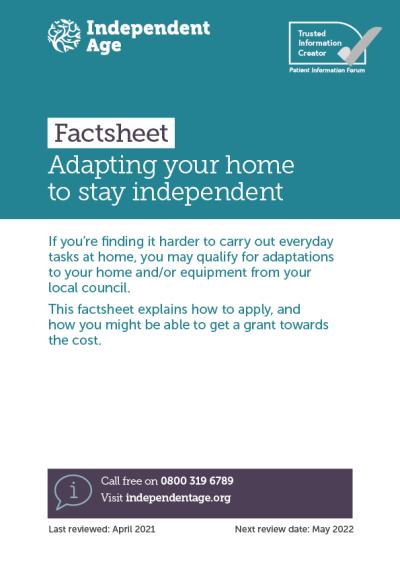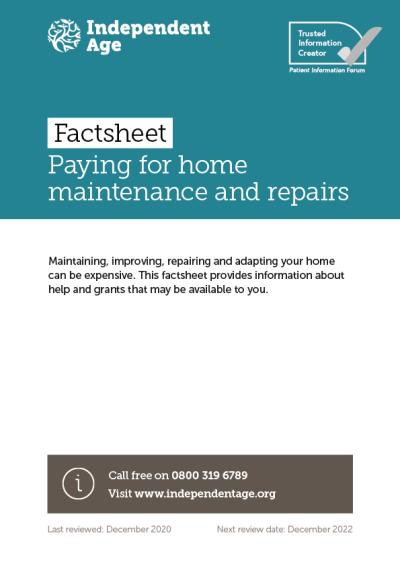Related publications

Adapting your home to stay independent

Making adaptations can be expensive, depending on what you need, but you may be eligible for financial help.
If you have been assessed as needing an adaptation or equipment that costs less than £1,000 to buy and install, the local council must provide this free of charge.
If a hospital occupational therapist gives you any equipment so that you can go home safely from hospital, this should also be free.
If you need an adaptation that costs more than £1,000 you may be eligible for a Disabled Facilities Grant (DFG). You can get an application form from your local council’s housing or environmental health department.
A DFG is means-tested. Your income and savings over £6,000 (and those of your partner, if you have one) will be taken into account when deciding how much you will get. The maximum grant available in England is £30,000.
If you are eligible for means-tested benefits such as Pension Guarantee Credit or Housing Benefit, you won’t have to provide any additional financial information and the DFG should cover the full cost of the work, up to £30,000.
Councils can provide discretionary top-up grants if you're assessed as needing adaptations that cost more than £30,000. However, because they are discretionary, the council can turn you down.
Your local council may also have its own grants or loan schemes for adaptations, repairs and improvements.
Home Improvement Agencies (HIAs) are not-for-profit organisations that can provide help and advice on home adaptations and repairs.
They may help you to apply for DFGs and other grants, as well as getting estimates and arranging surveys.
HIAs may also have technical officers who can oversee any work on your home.
Once the adaptation has been installed it belongs to you. That means that you are responsible for maintenance and repairs.
The council may pay for an extended warranty on some types of work (for example, a stairlift). If they don’t, you should arrange insurance for up to five years after the work is completed, or consider buying a warranty yourself because repair and maintenance work can be expensive.

You can find contact details for your local council on gov.uk/find-local-council.
The Disabled Living Foundation provides advice and information on independent living.
Use the HIA directory to find a Home Improvement Agency in your area.
By calling Independent Age's free and impartial Helpline, you can get information and advice from one of our friendly advisers, or order our free guides.